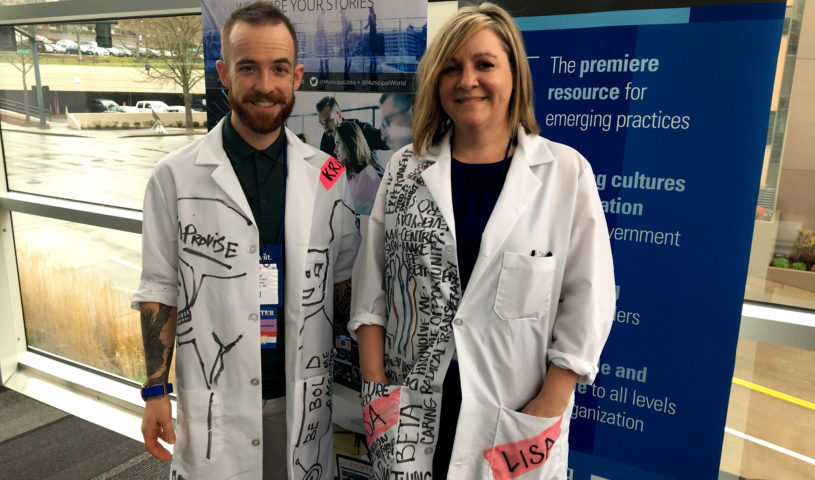Change your culture, change your life

Does culture really eat strategy for lunch? A highly motivated team of city staff have answered this age-old question and will challenge you to think differently about organizational culture.
A people-centric culture is the new business model for organizational success and personal happiness. A motivated city staff team in the City of Ontario lead a workshop at the Transforming Local Government conference, presenting their findings when creating the We’re MAD! program, a personal journey of human leadership. These findings including vision, transformational leadership, culture of innovation, organizational values, employee engagement, work-life integration, high performance teaming, and attracting and retaining a talented work force for tomorrow.
The We’re MAD! program was conceived in late 2012 by the Administrative Services Agency as a direct result of a city-wide initiative (Ontario’s Approach to Public Service) to help foster employee passion for a career in public service. Moreover, the program was modeled from the success of several private sector organizations, such as Zappos’ employee happiness and customer service centric culture, Google’s culture of innovation and creative workplace, and Simon Sinek’s leadership message “Start With Why.”
Although workplace culture may appear straightforward, everyone knows it is not that simple. The We’re MAD! program is innovative because it uses a completely different strategy of a people-oriented perspective rather than an organizational-oriented perspective. The MAD leadership value of “people first, work second”, and the culture value of “live first, work second” are counter-intuitive to conventional management thinking. The program has also generated greater self-awareness and changed people’s beliefs, resulting in an organizational transformation from a traditional management fixed mindset focusing on work achievements to a modern leadership growth mindset focusing on developing and inspiring people.
The program has transformed people and has resulted in a substantial change in staff’s beliefs, behaviors, and mindsets about work, people, and leadership. As a result, people’s decision making has changed for the better, resulting in the following:
- achieved higher employee engagement, morale, and trust,
- increased productivity,
- created a culture of innovation,
- produced insanely great customer experiences,
- created a high-performance team,
- changed the public perception of government employees,
- enhanced the City’s reputation,
- attracted & retained talent,
- reduced the fear of taking calculated risks, and
- most importantly, changed people’s lives for the better.
To measure employee engagement, morale and happiness, the team conducted an anonymous survey using the Happiness at Work Survey (developed by Zappos). The results were very favorable and easily confirmed their outcome. In addition, they implemented a web and mobile phone application (Expresit) to electronically receive public feedback on customer service level at City Hall. The response from the public have been overwhelmingly positive. Prior to the program, the city received approximately 10 feedbacks annually (7 negatives, 3 positives). This past year, they received 268 (6 negatives, 262 positives). The volume increased by a multiple of 27 times and the ratings went from a negative rating of 70% to a positive rating of 98%.
While there are no financial cost savings, the savings in opportunity costs, gains in employee engagement, and innovation have been significant. As a result of the program, there have been very little staff turnover and no employee grievances in the Administrative Services Agency since its inception. Moreover, employee productivity has increased by approximately 10-15%. But more importantly, the innovative ideas from staff to improve customer service have greatly enhanced the City’s reputation and level of service.
Although the program was developed and implemented over the past 5 years, the program will continue to be a work-in-progress since the journey of leadership and culture building is a life-long process.


